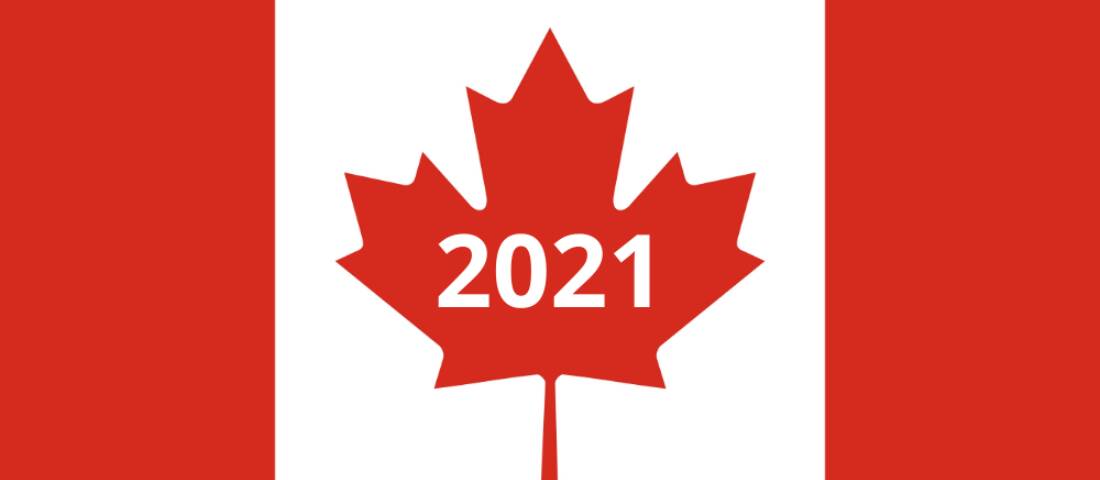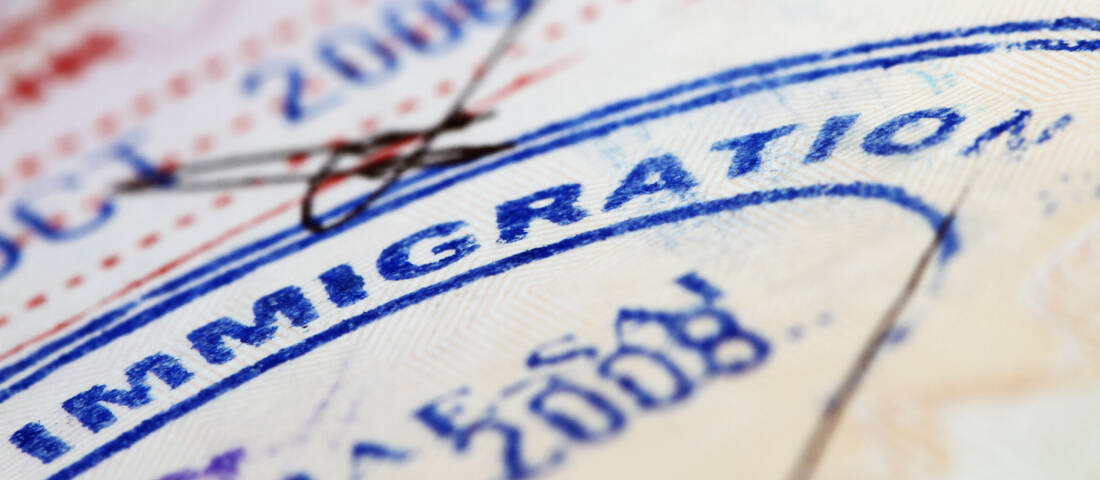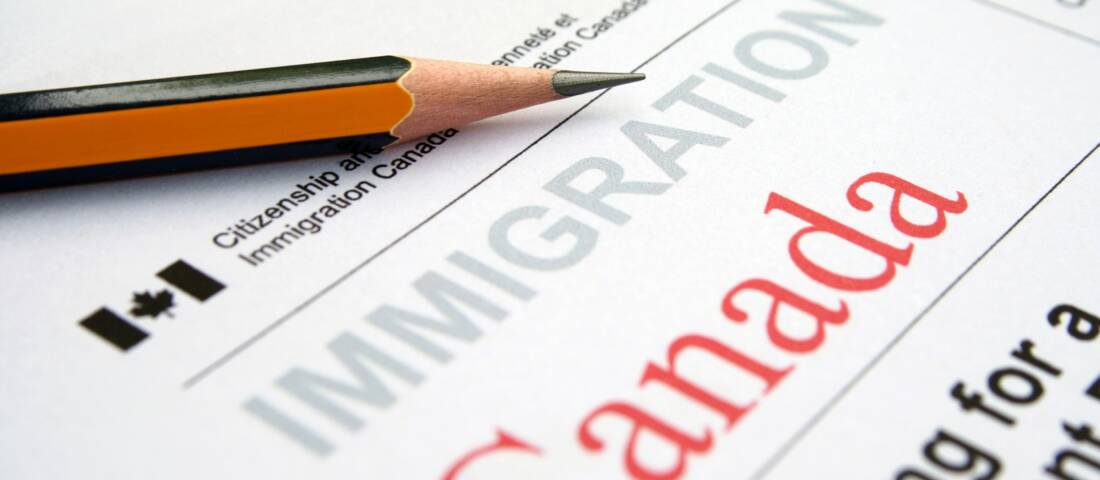2021 was a challenging year in immigration and a busy year for immigration news and updates. Here is the Ackah Law 2021 Immigration Year in Review with some of the key changes and news in Canada and the United States immigration during 2021:
1. Pre-departure COVID Testing and Negative Results Required For All Air Travellers to Canada
The Government of Canada announced that effective January 7, 2021, at 12:01 a.m. EST, all air passengers five years of age or older must have pre-departure COVID testing and will be required to test negative for COVID-19 BEFORE travelling from another country to Canada.
Four years after Britain voted to leave the European Union, Brexit went into effect in the United Kingdom on January 1, 2020. Among the many changes facing British residents, expats, business visitors and tourists are the changes in how the UK will manage immigrants, including immigrant students and entrepreneurs. The UK's post-Brexit immigration policy will impact all immigrant entrepreneurs and international students, and may create significant challenges for the tech industry.
3. Immigrants Working in Healthcare Will Have More Opportunity for Permanent Residency
Canada Prime Minister Justin Trudeau requested that Immigration, Refugees and Citizenship (IRCC) Minister Marco Mendicino find more pathways for Permanent Residency for immigrant healthcare workers. In his January 15, 2021 mandate letter, the PM made the recruitment and retention of healthcare workers from other countries a top priority for Canada immigration.
4. Alberta COVID Pilot Program Update
As of January 25th, 2021, participants in the Alberta Expedited Quarantine Border Pilot Program must now remain in quarantine until receiving a negative result from their second test on day 7 or 8 (counting arrival day as day one). This means that travellers in the program must immediately return to quarantine if they haven't taken their second test and received negative results. On application, quarantine is still mandatory for approximately 7-8 days.
5. IRCC Policy on COVID’s Impact on Residency Obligations
The global pandemic has put many unexpected demands and burdens on everyone but has put additional roadblocks in front of newcomers to Canada who are trying to meet their immigration requirements.
6. Provincial Nominee Program: 2021 PNP Draws & Updates
Canada encourages applications for Permanent Residence from people with skilled abilities, education and work experience that will contribute to the Canadian economy. One of the most significant programs is known as the Provincial Nominee Program or PNP. This is a system that allows the territorial and/or provincial governments to select immigrants based on the specific economic needs of that territory or province.
7. PGWP Update: New Work Permit Policy for Foreign Graduate Students
Canada has introduced new work permit policies for foreign graduate students (PGWP) and it is open for applications. International graduate students who were unable to get work due to COVID restrictions. Canada's Minister of Immigration, Refugees and Citizenship (IRCC) Marco E. L. Mendicino announced the new policy that will give former international students who hold or held a PGWP the opportunity to apply for an open work permit.
8. Hong Kong Residents Now Eligible For a 3 Year Canada Work Permit
Beginning February 8, 2021, Hong Kong residents who are recent graduates are eligible to apply for a new open work permit that is valid for up to 3 years. The work permit will allow Hong Kong residents to gain valuable experience in Canada that will help them apply for Permanent Residence in Canada. Canada is s deeply concerned about Hong Kong's new National Security Law and the deteriorating human rights situation there, and is opening new opportunities for Hong Kong residents to move to Canada. Eligible spouses, common-law partners, and dependent children can also apply for a study or work permit.
9. Largest Express Entry Draw in History for Immigrants Living in Canada
If you are an immigrant already living in Canada who wants to become a permanent resident, 2021 might be the year your dreams come true. On Saturday, February 13, IRCC (Immigration, Refugees and Citizenship Canada) held an Express Entry draw from the candidate pool and issued invitations for 27,332 people: five times the previous high of 5,000 for promising skilled workers who already live in the country.
10. All Online Classes Qualify in PGWP for International Students
Canada has recognized that travel restrictions are hurting international graduate students by expanding temporary program changes so that all online classes from their qualified university can count toward Post-Graduate Work Program (PGWP) eligibility. Before the pandemic severely restricted international travel, online learning could not count towards a PGWP application.
11. Great News for Canada Experience Class Permanent Resident Applicants
The Canadian government approved 27,000 plus Canadian Experience Class (CEC) permanent residence applications for people who had applied for Express Entry on February 13. Many of those who received an Invitation To Apply didn't qualify under normal EE requirements because they didn't have the necessary points. To meet Canada's immigration goal to welcome over 400,000 newcomers in 2021 to help build the economy, the government recognized the thousands of qualified immigrants who are already successfully living and working in Canada under the Canada Experience Class program. CEC is 1 of 3 immigration programs managed through Express Entry, IRCC's online application system for skilled foreign workers.
12. Updates to the Owner Operator LMIA
Canada immigration is ending the special work permit processing currently available for immigrant business owners under the Temporary Foreign Worker Program (TFWP) the owner-operator category. Effective April 1, 2021, owner/operator candidates will be evaluated on the same basis as other TFWP applicants.
13. Canada To Expedite Processing for Family Class Visas
Immigration, Refugees and Citizenship Canada (IRCC) has announced plans to hire 62 additional employees in order to expedite the processing of family class immigration applications. IRCC's expanded offices in Nova Scotia should be able to process more applications and shorten the processing times that have grown longer during the pandemic and will be primarily dedicated to family class overseas applications.
14. Ontario Launching Expression of Interest System for Ontario Immigrant Nominee Program
The Ontario Immigrant Nominee Program (OINP) is launching an Expression of Interest (EOI) points-based system that ranks candidates based on human capital and labour market factors. In announcing the new system on March 15, OINP announced that have closed the affected streams to new applicants until the new system launches in the near future. The EOI points-based registration system helps Ontario select skilled economic immigrants to meet the province’s labour market needs. There have been many complaints about OINP's system and in the Fall of 2020 they announced they were researching a new, fairer system for applicants to express an interest to apply to the OINP.
15. Online Status Tool: Check Your Immigration Application
Canada's IRCC (Immigration, Refugees and Citizenship Canada) is prioritizing applications from people who are exempt from travel restrictions. IRCC is experiencing significant processing delays due to COVID restrictions and has released updated information on the immigration application processing backlog. To help keep applicants updated, IRCC has also released an online status tool so applicants can check their status online.
16. Canada Top Destination For Foreign Workers, Says New Study
Canada has overtaken the U.S. as the top destination for foreign workers, says a new study by the Boston Consulting Group (BCG) and The Network. The report on global mobility found that Canada has become the most attractive choice for foreign workers due to the COVID pandemic and former President Trump's restrictive immigration policies were key factors in driving foreign workers' preferences on where to move. The United States was the #1 choice amongst foreign workers in 2018 and 2014, while Canada placed 3rd globally.
17. Toronto's International Soft-Landing Program Attracts Indian Tech Workers
Toronto is actively recruiting Indian tech workers to move to Canada! Many young, educated Indian tech workers continue to choose Canada over the United States due to the difficulty of getting a U.S. H-1B visa and other employment-based immigrant visas. Indian nationals have the highest success rate when applying for Canadian immigration compared to any other country. The number of Indians becoming Permanent Residents in Canada more than doubled from 2016 to 2020.
18. Canada To Enact New Medical Inadmissibility Rules for Immigrants
Canada's IRCC (Immigration, Refugees and Citizenship Canada) plans to permanently revise medical inadmissibility rules that bar immigrants with certain medical disabilities or illnesses. The current 2018 medical inadmissibility rules ban immigrants on health grounds if their health condition is reasonably expected to cause excessive demand on health or social services over a period of five consecutive years immediately following the most recent medical assessment. The excessive demand cost threshold against migrants is updated yearly and was $21,204 in 2020.
19. Accelerated Pathway to Permanent Residence for 90,000 Essential Workers and International Graduates
Canada has announced 3 new accelerated pathways to permanent residency for over 90,000 essential temporary workers and international graduates. These new programs and special public policies will grant permanent status to temporary workers and international graduates who are already in Canada and who possess the skills and experience Canada needs to fight the pandemic and accelerate the economic recovery. In January, Prime Minister Trudeau made the recruitment and retention of healthcare workers from other countries a top priority for Canada immigration.
20. Updated ITA Express Entry Instructions for Permanent Residence
Canada's IRCC (Immigration, Refugees and Citizenship Canada) issued updated ITA Express Entry instructions and guidelines for ITAs (invitations to apply) for permanent residence under the Express Entry system on April 16, 2021.
21. New Program for 40,000 International Graduates to Become Permanent Residents
Canada has a new opportunity for international graduates to become permanent residents if they are already in Canada and they possess the skills and experience Canada needs to fight the pandemic and accelerate the economic recovery.
22. Canada Fast Track to Permanent Residency for Foreign Healthcare Workers
Canada announced a new fast track to permanent residency for foreign healthcare workers if they are already in Canada and they possess the skills and experience Canada needs to fight the pandemic and accelerate the economic recovery.
23. 3 New Permanent Residency Programs For French and Bilingual Applicants
Immigration is considered essential to the vitality of Francophone communities across Canada. Canada's IRCC (Immigration, Refugees and Citizenship Canada) announced that in order to promote Canada’s official languages English and French 3 new permanent residency programs for French and bilingual applicants are available.
24. Quebec To Increase Immigration Quotas for 2021
Quebec plans to increase immigration quotas, the province's immigration minister Nadine Girault announced on April 29. Girault said the COVID pandemic slowed immigration, while Quebec's already existing severe labour shortage continued to grow. Girault said Quebec experienced a "shortfall of nearly 17,000 or 18,000 people" immigrating to the province last year.
25. TR to PR Pathway: Guide to Canada's 6 New Permanent Resident Pathways
Canada's IRCC (Immigration, Refugees and Citizenship Canada) has released a guide to apply for the new temporary program for temporary residents to become permanent residents. Dubbed TR to PR Pathway, the 6 new temporary pathways open May 6, 2021, at 12pm ET, with a goal of accelerating permanent residency for 90,000 essential healthcare workers, temporary essential workers in other fields, international graduates and francophones and bilingual workers already in Canada:
26. Expedited Work Permits for UK and Northern Ireland Citizens: CUKTCA
The Canada-United Kingdom Trade Continuity Agreement (Canada-UK TCA, or CUKTCA) went into effect on April 1, 2021, and provides expedited work permits for United Kingdom and Northern Ireland nationals and businesses. Previously, U.K. citizens were covered under CETA provisions, which CUKTCA is modelled after.
27. New Ruling on NEXUS Card Cancellations
Canada's Federal Court has ruled against NEXUS card cancellations for minor rules infractions. Over 1.4 million of the 1.7 million NEXUS cardholders are Canadian citizens or permanent residents, and every year hundreds of NEXUS cards belonging to Canadians or Americans are revoked for minor errors.
28. New Pathways to Permanent Residence for Hong Kong Citizens
Canada has launched two new pathways to permanent residence for Hong Kong citizens. First announced in November 2020, the new IRCC temporary public policy for Hong Kong residents who are currently in Canada provides a pathway to permanent residence for eligible applicants and their families. Canada has implemented the new ways for Hong Kongers to live and work in Canada as a response to "deteriorating human rights" under Hong Kong's new national security law.
29. Ontario Removes Director Residency Requirement
The Ontario Business Corporations Act (OBCA) has eliminated the current Canadian residency requirements for directors, effective July 1, 2021. This affects private and publicly held Ontario corporations and immigrant entrepreneurs who want to incorporate in Toronto and the Province of Ontario, and make it easier for foreigners to open a business in Canada.
30. Updated Express Entry 2021 Proof of Funds Requirement
Canada's IRCC (Immigration, Refugees and Citizenship Canada) has updated the proof of funds required for Express Entry candidates to immigrate to Canada. Proof of funds shows the immigration authorities that you have enough money to live in Canada and will not require government assistance. IRCC updates the minimum amount of money immigrants will need every year, based on 50% of the low income cut-off totals.
31. Canada Opens Borders To Vaccinated Americans August 9
On July 19, the Canadian government announced that due to high Canadian vaccination rates, Canada's border will open to fully vaccinated Americans on August 9, and other foreigners on September 7. Travellers are required to show proof of vaccination and use ArriveCan, an app that allows travellers to digitally provide contact and quarantine information.
32. Canada's New Open Work Permit for Essential Workers and International Graduates
Essential workers and international graduates who have applied for permanent residence under the 6 new temporary pathways launched in May 2021 can now apply for an open work permit while they wait for their applications to be processed. Immigration Minister Marco Mendicino announced the new open work permit option will open July 26 so that qualified applicants who have an expiring temporary work permit do not have to worry about their temporary status expiring during the process and having to leave Canada. Open work permits issued under the policy will remain valid until December 31, 2022.
33. 2021 Parents and Grandparents Lottery (PGP) Announced
The 2021 Parents and Grandparents lottery (PGP) will start the week of September 20, 2021. IRCC will send invitations to potential sponsors who submitted an interest to sponsor form in 2020. Invitations To Apply (ITA) will go out for 2 weeks starting on September 20, 2021. On March 27, 2020, IRCC announced a delay in opening the 2020 Parents and Grandparents Program "due to the current focus on responding to the COVID-19 pandemic."
34. Canada Permanent Residents Can Now Submit Citizenship Applications Online
Effective August 11, 2021, Immigration, Refugees and Citizenship Canada (IRCC) has launched a new online tool to submit citizenship applications online. The online application tool is currently open only to single applicants over the age of 18.
35. Canada Will Require Air, Land and Sea Travellers to Have COVID Vaccine
Canada Transport Minister Omar Alghabra announced on August 13 that all commercial air travellers, passengers on trains between provinces and cruise ship passengers will soon be required to have the full COVID vaccine. The new traveller vaccine requirements will go into effect "in the fall and no later than the end of October." Canada's border opened to fully vaccinated American citizens and permanent residents on August 9, and will open to other foreigners on September 7.
36. Quebec's New Initiatives to Hire More Temporary Foreign Workers During Workforce Crisis
The province of Quebec has reached an agreement with Canada's federal government that will make it easier to hire temporary foreign workers to solve their labour shortage. Quebec was experiencing labour shortages prior to the pandemic, and they have worsened since March 2020. Quebec is the first province to negotiate an agreement to solve its workforce crisis with the government. This temporary foreign worker pilot program will run until December 31, 2023,
37. Canada Invests $100 Million to Support Newcomer Integration
Getting approval to move to and live in a new country is complicated and can take time. Once newcomers arrive in Canada, they then need to learn about and successfully assimilate into the Canadian way of life at work, school and in their daily life. Integration has been especially challenging for newcomers arriving in Canada since March 2020 during the pandemic. Canada announced it will invest $100 million over the next 3 years to improve access to newcomer integration and settlement services for newcomers through the IRCC service delivery improvements (SDI) process. The August 12 press release announcing the new settlement services will help integrate newcomers into their new communities and support their settlement as Canada recovers from the pandemic.
38. Canada Special Immigration For Afghanistan
Canada's IRCC is committed to helping the crisis in Afghanistan and has implemented expedited, special immigration for Afghanis. Canadian evacuation flights from Afghanistan began August 4, and have relocated more than 1,100 people out of Afghanistan to Canada this month. Immigration Minister Marco Mendicino said 40 families who were evacuated before the Taliban reached Kabul have completed their COVID-19 quarantine periods in Canada.
38. US Northern and Southern Land Borders to Reopen In Early November To Fully Vaccinated Travellers
Update October 15, 2021: The United States is reopening its land borders to nonessential fully vaccinated travellers beginning November 8.
39. Updated Canada Travel Requirements
Canada has updated many of its travel requirements to enhance COVID safety protocols. Travel policies and requirements are frequently changed as more information is available. It's important for travellers to be informed, prepared and to stay flexible when travelling, especially as more borders are opening up and people are beginning to travel more for work, for family, for school and going into the busy holiday season.
40. Alberta Vaccine Passport and QR Code Provide Proof of Vaccination
Update November 16, 2021: Alberta's QR code app has been released, and Alberta now requires a QR code for its vaccine passport program.
41. Updates for L-2 and H-4 Visa Holders
Nonimmigrant spouses of certain United States L-1 and H-1B visa holders who were unable to renew or obtain work visas will now be able to work legally. U.S. Citizenship and Immigration Services (USCIS) agreed to the L-2 and H-4 visa holder changes in the settlement of a class-action lawsuit after a 3 year backlog and loss of spousal work permits due to policy changes made during the Trump administration.
42. Alberta Corporate Director Residency Requirement Removed
Alberta has removed the Canadian residency requirements of corporate directors for Alberta corporations governed by the Alberta Business Corporations Act (ABCA), effective March 29, 2021. The removal of the Alberta director residency requirement affects private and publicly held Ontario corporations and immigrant entrepreneurs who want to incorporate in Calgary, Edmonton and the Province of Alberta, and make it easier for foreigners to open a business in Canada. In addition, ABCA corporations are now required to appoint an agent who is an individual resident of Alberta and has an office that is accessible to the public during normal business hours.
43. Updates to Bridging Open Work Permit Eligibility
Canada's IRCC (Immigration, Refugees and Citizenship Canada) has made updates to the Bridging Open Work Permit that make the work permit more available and flexible to immigrant applicants.
44. TEER: Canada's New National Occupational Classification
Canada is introducing a new way to categorize immigration employment requirements. Canada's National Occupational Classification (NOC) is responsible for federal social programs and the labour market, and is updated every 10 years. In 2022, Canada's Employment and Social Development Canada (ESDC) will introduce TEER: their Training, Education, Experience and Responsibilities system of national occupational classification. The new NOC 2021 was developed in partnership with Statistics Canada to reflect changes to the Canadian economy and labour market.
45. Changes for Entrepreneurs in the Alberta Immigrant Nominee Program
Each Canadian province or territory has its own specific immigration procedures. The Alberta Immigrant Nominee Program (AINP) is for foreign individuals who want to live and work in Alberta, Canada, including entrepreneurs who want to help grow the Canadian economy and create jobs for Canadians. AINP has 3 pathways for entrepreneurs who plan to live in Alberta and buy or start a business in the province. Effective December 7, 2021, AINP announced several changes to its existing entrepreneur immigration streams that make it easier for immigrant entrepreneurs in the Alberta Immigrant Nominee Program to move to Alberta:
Note: Some of the new programs and policies have changed throughout the year, and will continue to change in 2022. Contact Ackah law for complete and current immigration updates for Canada and the United States at 403-452‑9515.
Visit the Ackah Law Blog for a complete list of 2021 immigration news and updates. Follow Ackah Law @ackahlaw to stay updated on changes that occur throughout 2022!








